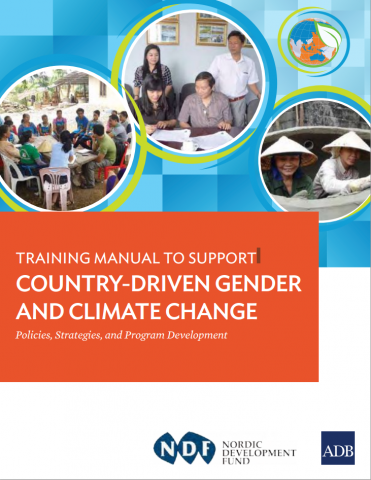Training material
Training Manual To Support Country-driven Gender and Climate Change


Training Manual To Support Country-driven Gender and Climate Change, in policies, strategies, and program development.
The manual provides trainers, policy makers, and practitioners with background information to inform the development of gender-sensitive mitigation measures and includes material to conduct training on gender and climate change.
It starts by introducing the nexus of gender and climate change, lays out the objectives of the training course, gives instructions on how to use this manual, and provides a recommended training agenda.
Asian Development Bank, 2015
